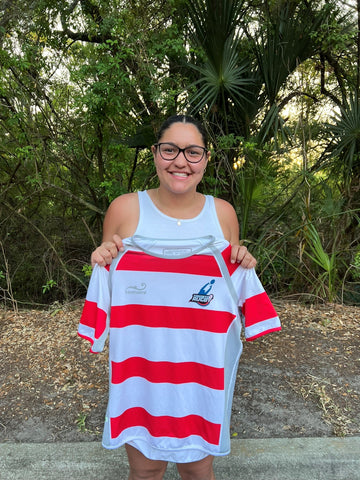As World Pride month has come to an end, and as Montreal Pride rapidly approaches, I am left reflecting on my own queer journey in Canada and as an athlete. I am fortunate to be Canadian – a country that is widely considered to be one of the most accepting and progressive nations with regards to LGBTQ+ issues, and one where I am afforded the same legal rights and protections as my heterosexual peers. I am glad to be Canadian, and I am especially glad to be an openly gay athlete in Canada. Although it is getting better, the sports world has not always been the most welcoming environment for queer folks. This is a reality that I certainly faced as a young man. Growing up, I have always had passion for sports, starting my athletic journey at the age of 4 with recreational soccer. Although I didn’t play soccer for long, I did enjoy several other sports throughout my life, including dance, volleyball, rowing, and, like a proud Northern-Ontario boy, curling. Each of these sports had a different culture, each with its own benefits and drawbacks. But, growing up, one element remained true throughout every sport I did: I kept my sexual orientation hidden. I did this mostly out of fear of how others would react to me. I wanted so desperately to fit in and be a part of my team that I didn’t want to jeopardize my belonging by coming out as gay. This, without a doubt, held me back in my athletic development. A part of me was always focused on making sure I said the “right” thing, or acted the “right” way, all to avoid accidentally outing myself. Obviously, this takes a lot of mental energy – energy that I wish I could have dedicated to improving as an athlete.
Having made a conscious decision to end my competitive sporting career after high-school, I turned my attention to recreational sports. I was fortunate that the University of Guelph had a big intramural sports program. That way, I could stay in touch with my athletic side while making new friends. As I met more and more people through the intramural program, I inevitably met other LGBTQ+ athletes, some of which had been out in high school while playing competitive sports. This was a bit of a revelation to me, as I realized that being LGBTQ+ and being an athlete are not mutually exclusive! This discovery kick-started my own coming out process, which happened shortly after the end of my undergrad at 21 years old.
After my move to Montreal in 2021 I decided to try a new sport: rugby. This time, however, I decided to join a dedicated LGBTQ+ sport team: Armada Montreal RFC. As the only dedicated inclusive rugby club in the Province of Quebec, the team offers sport programming for all adult who wish to play rugby in an inclusive environment. This was the first time that I had heard of a dedicated inclusive sports team, and I couldn’t wait to try it. This would also be the first time that I would play competitive sports after my coming out, and what a revelation it was. I found myself being able to dedicate 100% of my mental and physical energy to being an athlete, without having to worry about accidentally outing myself and how that might impact my relationship with my teammates. It is now my second season with Armada Montreal RFC and, needless to say, I have fallen in love with the sport. But beyond that, I have fallen in love with the rugby community, as a whole. I have discovered a true brotherhood, with a culture that exemplifies mutual-respect, athleticism, support, and, most of all, fun. I have also been pleasantly surprised by the inclusivity of the rugby community. I have found myself to be accepted and respected by the entire community, regardless of their sexual orientation. I have also been pleasantly surprised by the amount of LGBTQ+ representation throughout the sport, especially at the highest levels.
Over the years, the LGBTQ+ community has continued to become more and more accepted, world-wide. This has also led to more and more athletes publicly coming out, like Campbell Johnstone in rugby, Paola Egonu in volleyball, and Quinn in soccer. As I sit here writing this blog post, I am astounded by the immense impact that role models and community can have on young minds: LGBTQ+ and heterosexual alike. After all, it was my own peer-group that helped me accept and be proud of who I am, and it is my current sporting community that has helped me rediscover my passion for competitive sports as a queer adult. I have no doubt that, with more and more professional athletes coming out, young LGBTQ+ athletes will feel more and more comfortable coming out to their peers and feel safe playing sports. Although we still have work to do, I am comforted by the work that is currently being done and cannot wait to see what the future holds for LGBTQ+ athletes.

Photo of Eric playing with his club the Armada Montreal RFC.











